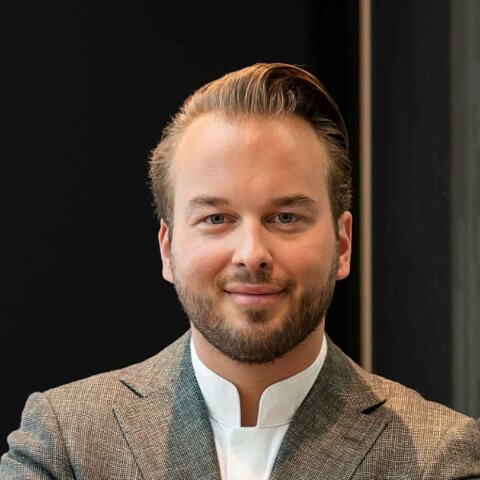Prominent entrepreneurs and industry leaders discuss Germany’s leadership role in the digital transformation of medicine. Moderator Sebastian Kuss (EMH) brings together Torsten Haferlach (co-founder of MLL Munich Leukemia Laboratory), Stefan Vilsmeier (founder of Brainlab), and former Siemens CEO Klaus Kleinfeld to examine how Germany became a medtech powerhouse.
Torsten Haferlach recounts MLL’s journey from a small university lab into a global leader in leukemia diagnostics, now serving over 80% of German patients and contributing to international research. He attributes this success to Germany’s strong infrastructure and MLL’s early adoption of digitalization and AI.
“We started with AI already 2017”, Haferlach says. “We include these AI processes now in daily routines before technicians, doctors and scientists write the reports and send them out to patients, because we still every day have only one goal: to serve patients best.”
Stefan Vilsmeier reflects on Brainlab’s evolution over 35 years, growing from humble beginnings into a medtech powerhouse operating in 6,700 hospitals worldwide. He emphasizes the necessity of software-driven solutions in modern healthcare. “The future of any medtech company is going to be driven by software”, he emphasizes. “There won’t be a meaningful product that is not going to generate tons of data.”
Vilsmeier also praises Germany’s stringent data regulations such as privacy law GDPR. “As a European, I’m proud of the GDPR because it really represents our values”, Vilsmeier says, noting that the limitations in using patient information can lead to superior software solutions for the world market. “If you manage to do it in Germany, then that can develop into a European solution and eventually a global solution.”
Klaus Kleinfeld draws attention to the importance of attracting highly qualified personnel. “In the end, it’s all about people”, he says. Success “starts and ends with talent and the way you build a team.”






